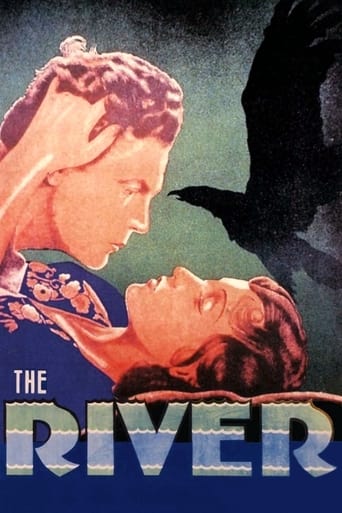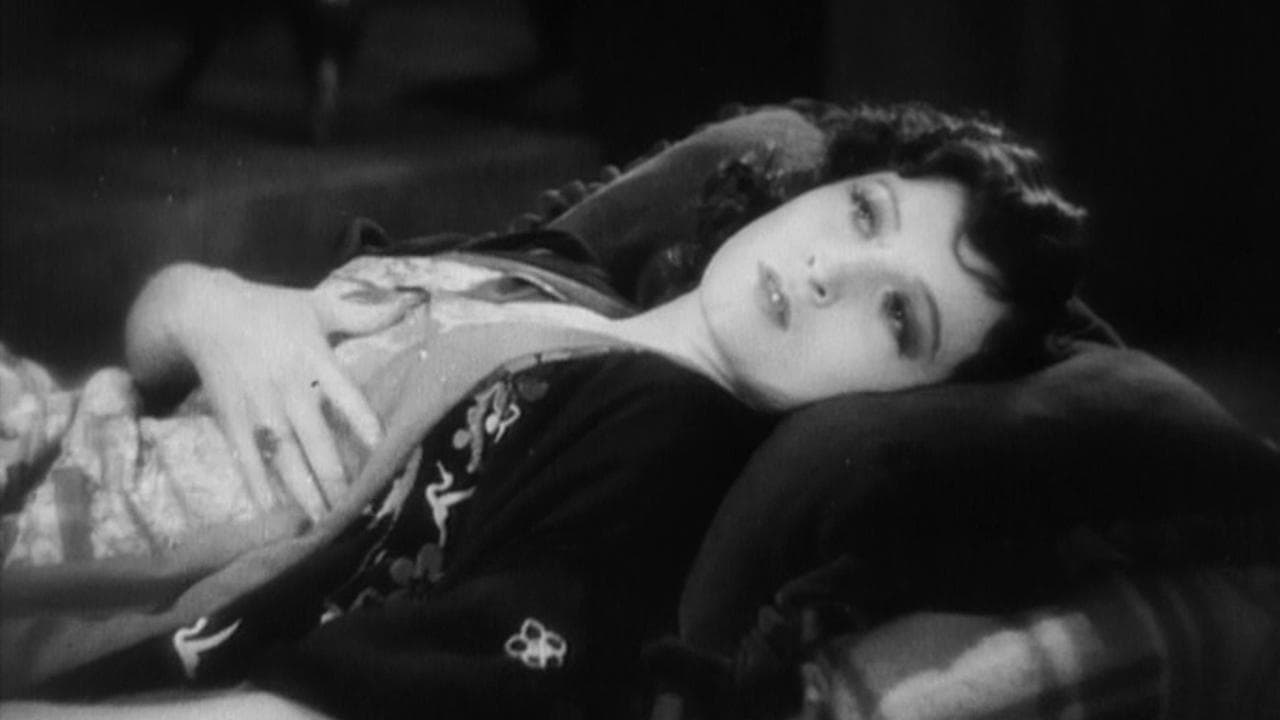JohnHowardReid
In addition to "7th Heaven" (1927), Frank Borzage also directed Charles Farrell in the 1929 part-talkie, "The River". Alas, none of the talking sequences survive. The opening and end reels are also missing, so what we have today is an erotic love story between Farrell and the super-sensuous Mary Duncan (star of "City Girl") in which the noirish elements always threaten to take center stage. The characters – naïve, weird, self-indulgent, traitorous – are all assembled, the background in all its super-extensive man-made squalor and stark, natural beauty is expertly drawn; but the original idyllic introduction and the power of the climax can now only be assumed. (The surviving footage is available on a 6/10 Fox DVD as a bonus with "7th Heaven". It's a nice bonus, but it also makes us sad that the rest of the movie is gone forever).
clanciai
This film was a revelation to me of Frank Borzage's true capacities of a very different and more original kind than the later professional films of his that made him world famous, especially the ones with Janet Gaynor. This is a wildly romantic epic of the wilderness in spectacular settings, which in part could have been Frank Borzage's own background and origin. The scenery is fantastic around the river in the mountains with its primitive community, and the story is perfect for that almost surrealistic environment. Charles Farrell is still young here, he hasn't met Janet Gaynor yet, and is the helpless prey of Mary Duncan as an experienced lady with a brutal past without enough sex. Charles fights her temptations, on one occasion he cuts down four trees in succession with just an axe to vent his boiled-up energy and frustration, while she amusedly looks on only the more certain of having him hooked.It's an amazing film in spite of being mutilated, the beginning and finale are missing, but from the added stills you still get the whole story, which ought to have been a wonder of cinematic art if not among Borzage's very best - who knows, but at least you can hope for that it will turn up somewhere - 80% percent of all American silents were lost, while only a fifth have come down to us - so far.But what really lifts the film to impressing heights is the tremendous music, pushing on all the way in sustained tension and perfectly matched to the loaded drama, and it was the music that caught my interest in even this mutilated film of poor technical quality. The music is as fascinating as the drama and the film and its romantic settings, and these different elements add to each other to enhance the vitality and volcanic life of the film. Yes, there is some Rimsky-Korsakov in it, but there is nothing wrong with Rimsky-Korsakov, and the mood of his brief interplay is perfectly suited to that particular moment of intimate intriguing intensity, like all the highly dramatic music to all the rest of the film. This would have been a tenner if it had been complete.
writers_reign
Frank Borzage is widely revered as a master of romantic film-making in a career that ranged from the Silents through the early days of the Talkies. It's difficult - and would be unfair to do so - to judge this film which is incomplete but what appears to be the central love story involving Charles Farrell and Mary Duncan - in lieu of his regular co-star Janet Gaynor - is more or less intact and with the exception of a completely ludicrous piece of background music - Rimsky Korakhov's The Flight Of The Bumblebee laid over a sequence both sensual and sensuous - it tests high on the authenticity scale. If suitable allowances are made for the period and the incomplete footage this is well worth a look.
claudecat
The other reviewers have pretty well covered this film, but I would like to add that the Cinémethèque Suisse, along with some other film preservationists, has created a version that reconstructs the plot using the script deposited at UCLA, and still images. Thanks to their hard work, it is now easy to understand the story (though the music they added left something to be desired--"Flight of the Bumblebees" is not appropriate for a seduction scene).If you've always wanted to see Charles Farrell without his shirt on (and who hasn't?), this is the movie for you. I agree with the other reviewers that the film contains a strong erotic charge. The stunning camera-work and lighting, the world-weary, Dietrichesque beauty of Mary Duncan (intriguingly out of place in the hardscrabble setting), and the always-gorgeous Farrell combine to fashion a moody, seductive world. But most of my fellow audience members were unable to give themselves over to the melodrama, and could only laugh at the plot and complain afterward, which was very annoying to us romantics in the audience.In addition to Charles and Mary, the remaining footage contains pieces of Ivan Linow's sympathetic portrayal of "a deaf-mute giant". You will also see a trained pet crow with a lot of personality, and a dead bear whose presence is unwittingly tragic.


 AD
AD


